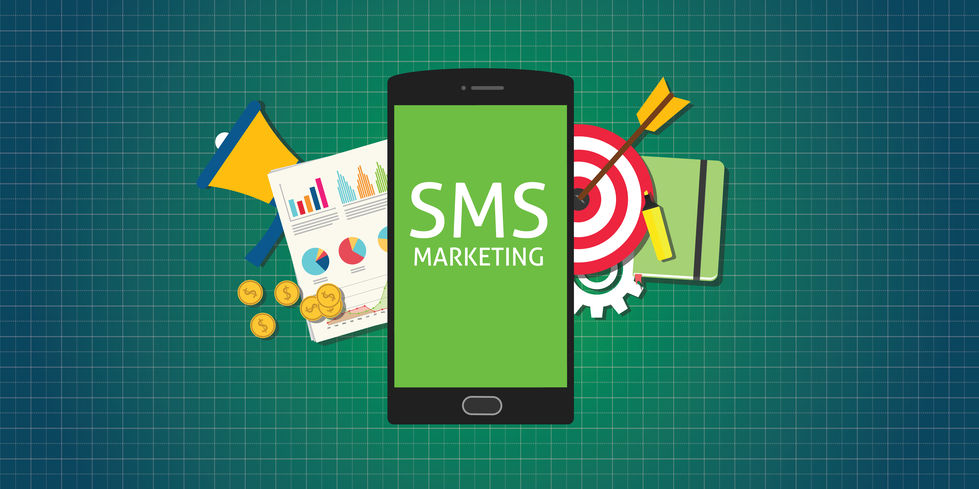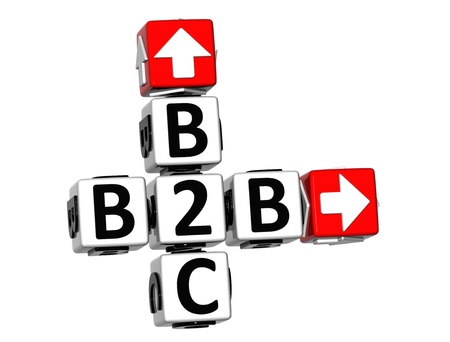
When you think of SMS (Short Message Service) marketing, many think of attention-grabbing text blasts from B2C companies promoting special offers or new products. B2B messaging feels very different as it is typically professional, solutions-oriented and showcases expertise and credibility. The audience for B2B messaging includes multiple stakeholders in a more complicated buying process. Does that mean SMS marketing doesn’t have a place in the B2B space? Let’s take a look.
The SMS Facts
Research shows that SMS open rates are as high as 98 percent, compared to a 20-percent open rate for email. This might be because SMS reaches individuals more directly and with less competition. In fact, consider that 74 trillion emails are sent per year compared to 8 trillion texts.
In addition to open rates, SMS has a 45-percent response rate, compared to the 6-percent response rate for emails. Similarly, it takes an average of 90 seconds for someone to respond to a text compared to 90 minutes to respond to an email.
Millennials, who now make up nearly half of the workforce, are the primary users of text messaging. As their influence in business continues to grow, it’s important to consider their preferred communication methods.
Given the statistics, it’s clear SMS can connect to individuals more effectively than its email counterpart. However, does that mean it can engage just as well, especially when it comes to generating B2B leads? The short answer is yes, but there are important steps to take to ensure text-message marketing fits into your B2B strategy.
How the B2B Environment is Different

The first and most vital step is to understand how B2B is different from B2C when it comes to marketing. The purchase motivation for business buyers is different than for consumers. Business buyers look for suppliers whose credibility, efficiency and expertise contribute to long-term business relationships. There are multiple levels of B2B decision-makers, major budget considerations, brand-alignment goals and ROI deliberations. Some key tips if you’re considering SMS marketing as a business-to-business strategy include:
- Focus less on flashy, promotional offers. Instead, concentrate more on engaging professionally with prospects and customers. Build relationships and show that you understand their concerns and needs.
- Recognize that SMS marketing is meant to complement other lead-generation and marketing efforts that build brand awareness. These may include email, phone, content marketing, website and social media outreach. A text message should always have a purpose that ties to other forms of marketing communication and provides a next step or call-to-action for the recipient.
- Use SMS marketing to share valuable content with viable prospects. Options include white papers, blogs, bylined articles and press releases. Provide a link to mobile-optimized content and your website via text as another way for prospects to discover and engage with your content.
- Rely on SMS to support sales enablement. If salespeople are struggling to get a hold of a prospect or client via email or phone, use a quick text to schedule a time to call or bring attention to an important email.
- Be respectful. Consider that text messaging is more intimate as it most often reaches contacts on their personal device. Ensure you gathered cell phone information with permission, follow all relevant communication regulations and value the contact’s privacy.
People at the Center of it All
With nearly 81 percent of Americans using smartphones, SMS marketing is a growing component of an effective multi-channel marketing strategy. Even though B2B SMS marketing looks very different than its B2C counterpart, when it comes down to it, text messaging works because it connects individuals. B2B buying processes might be more complex, but the people who make it all happen are still people. They are individuals who make businesses tick, so incorporate a strategy that reaches them quickly, concisely and conveniently by tapping into the methods they use most.

